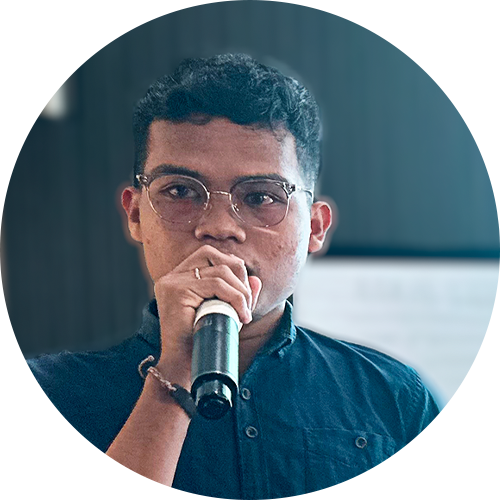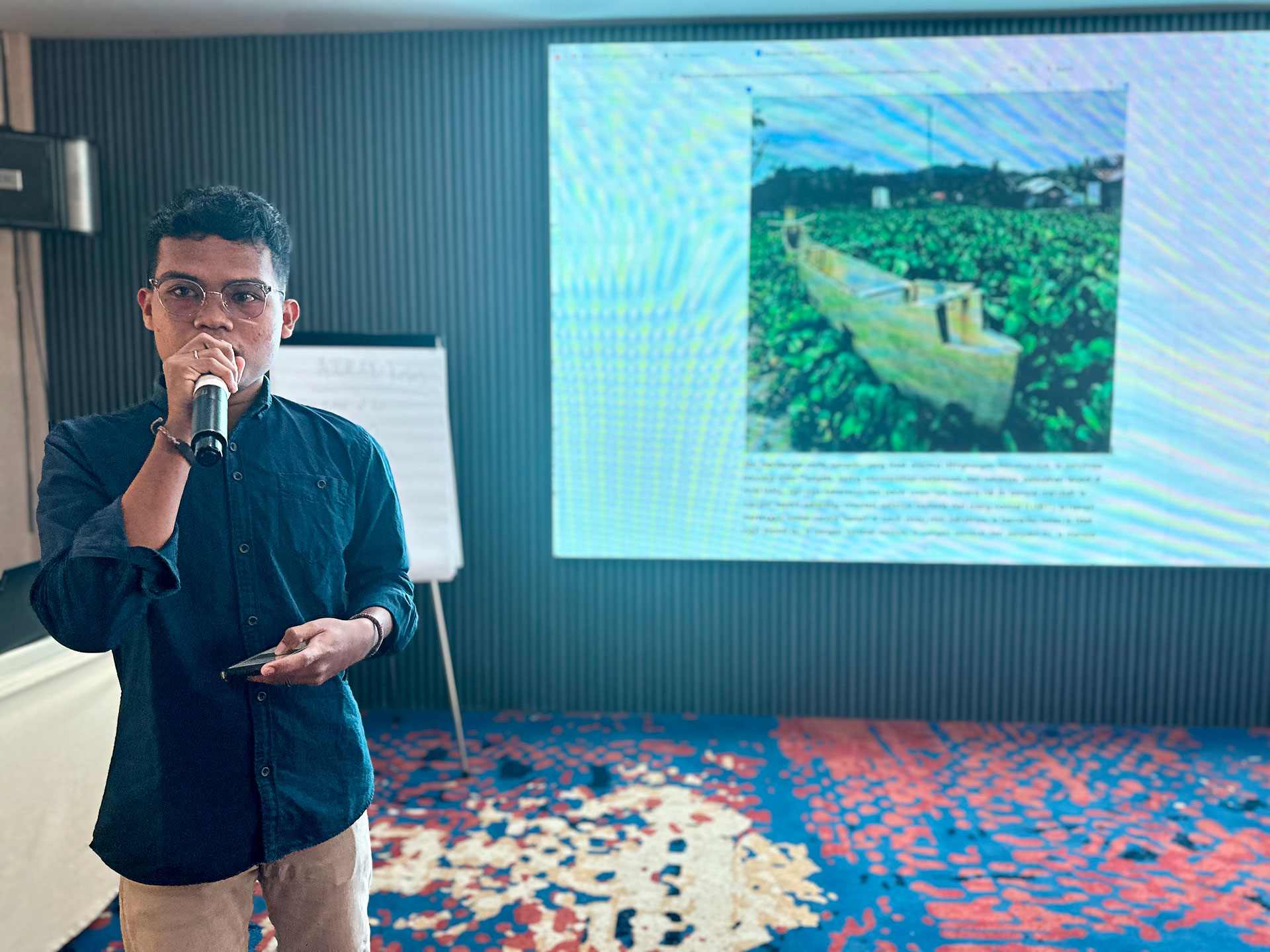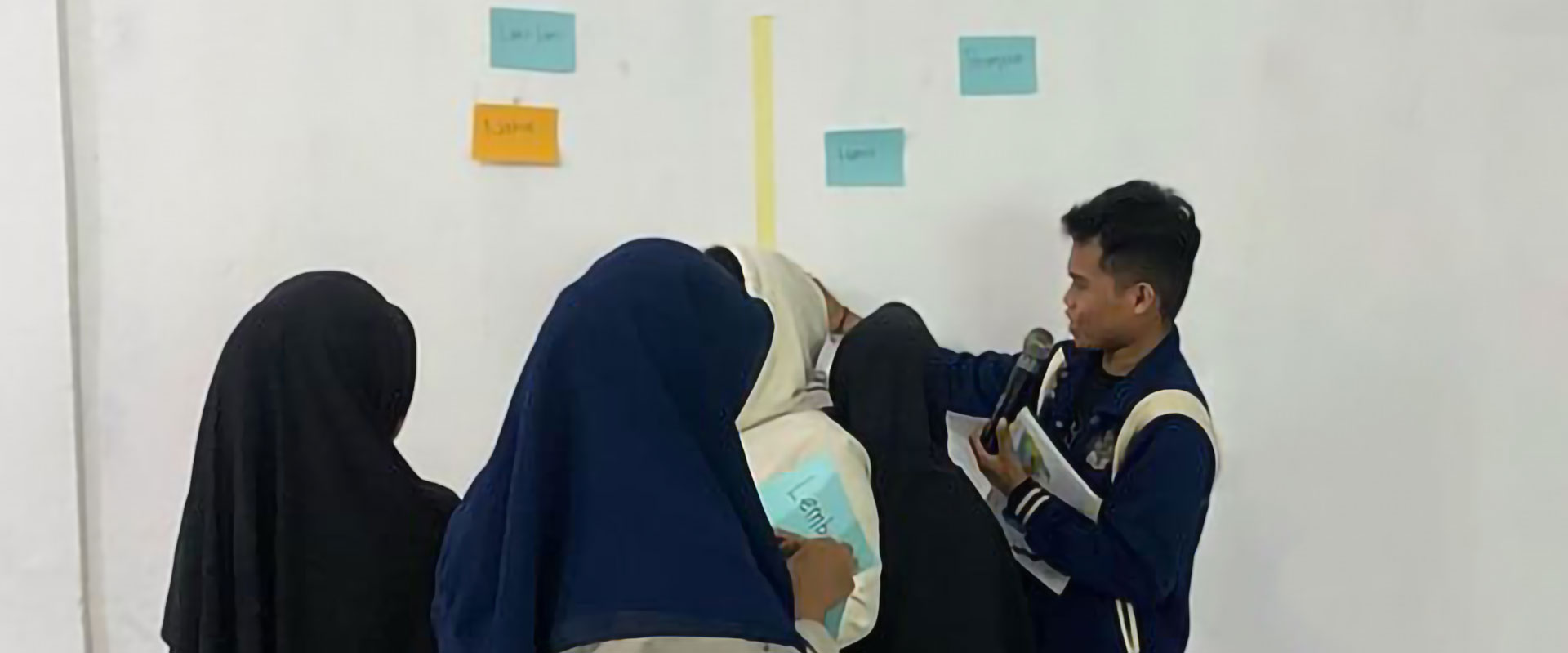Aditya aka Dhito Raditya, a 20-year-old law student from Central Sulawesi, Indonesia, is passionate about peer mentorship and volunteering. His dedication to making a difference is fueled by the goal of ending child marriage and school dropout in his region.
According to Girls not Brides, 16% of girls in Indonesia marry before the age of 18 and 2% marry before the age of 15, driven by gender inequality, level of education, poverty and family honor.
“I wanted to make a positive impact and be a role model for my peers. My age allows me to connect with young people on a deeper level, making them more open to discussing sensitive topics like sexual and reproductive health,” he says.
Raditya recently shared insights into his work.

What does your role as a peer mentor and youth volunteer involve?
As a volunteer with the Central Sulawesi Group for Equality for Women (KPKPST), my focus is on public health and social issues. I work as a bridge between teenagers and youth organizations, serving as a role model and creating a safe space for open conversations about challenges like the climate crisis, reproductive health, and child marriage.
I primarily offer emotional support to young people, especially survivors or victims of abuse. I create a safe space for them to share their stories and feelings without fear of judgment. I also provide motivation and inspiration to help them overcome challenges and achieve their goals.
How do you address adolescent sexual and reproductive health rights in your role as a peer mentor?
I provide accurate and age-appropriate information on sexual and reproductive health and rights, including definitions, current issues, and resources. I present this information in a clear and understandable way. For example, if a teenager asks how to talk to their parents about sex, I offer tips and suggestions for starting an open and honest conversation.
I’m keen on connecting with people at an emotional level so that they can open up to me about the challenges that they face.
Can you tell us more about your organization?
KPKPST is a local women’s organization in Central Sulawesi that was established in 2000.
In 2023, KPKPST focused on empowering young volunteers like me by training representatives from 45 villages. These young volunteers are now working to protect women and children from gender-based violence and raise awareness about reproductive health and the impacts of climate change.
How does Ipas Indonesia support KPKPST’s work?
Ipas Indonesia and KPKPST have collaborated on various initiatives, including community awareness campaigns, youth engagement, and research. As a young volunteer, I appreciate the opportunities to be involved in these activities and contribute to social change.

You were one of the participants of Ipas Indonesia’s PhotoVoice project, which aimed to capture the impact of climate change on reproductive health. Tell us more about that.
Ipas Indonesia took us through five days of photography training. They wanted to strengthen our capacity to understand the impact of climate on reproductive health. We were involved from start to finish, going to the community to observe the conditions and lives of those affected by the climate crisis. We also acted as mentors in our respective areas.
Through the project, I gained a deeper understanding of the connection between climate change and reproductive health. We observed firsthand how climate-related issues like water scarcity and crop failure can lead to higher incidences of child marriage, sexual violence, and school dropout.
How does KPKPST contribute to ending child marriage, teenage pregnancy, and school dropout?
We work to raise awareness about the negative impacts of these issues through education, campaigns, and advocacy. We develop easy-to-understand materials and encourage open dialogue. We also collaborate with government agencies and other organizations to implement policies and programs that protect children and promote their well-being.


